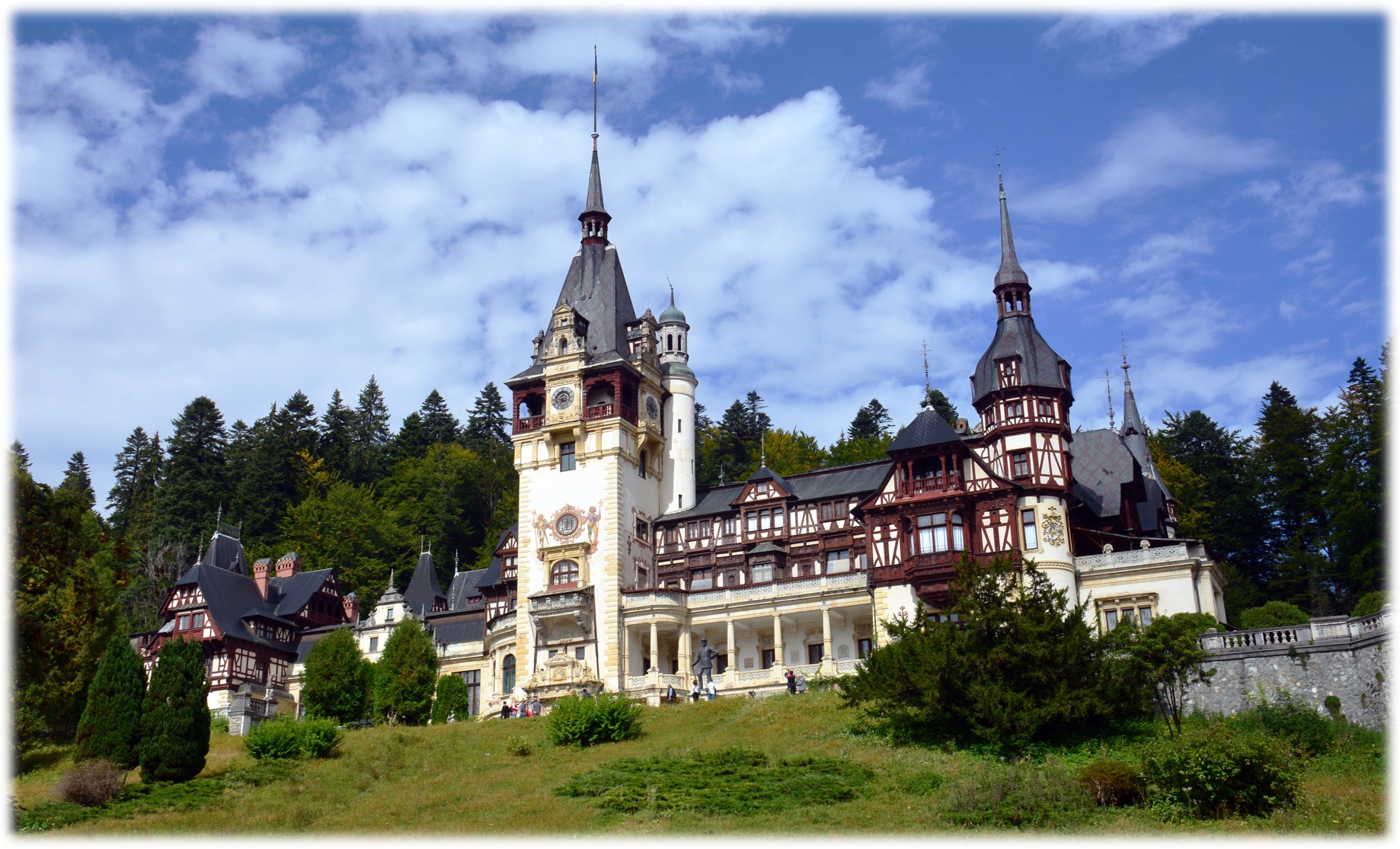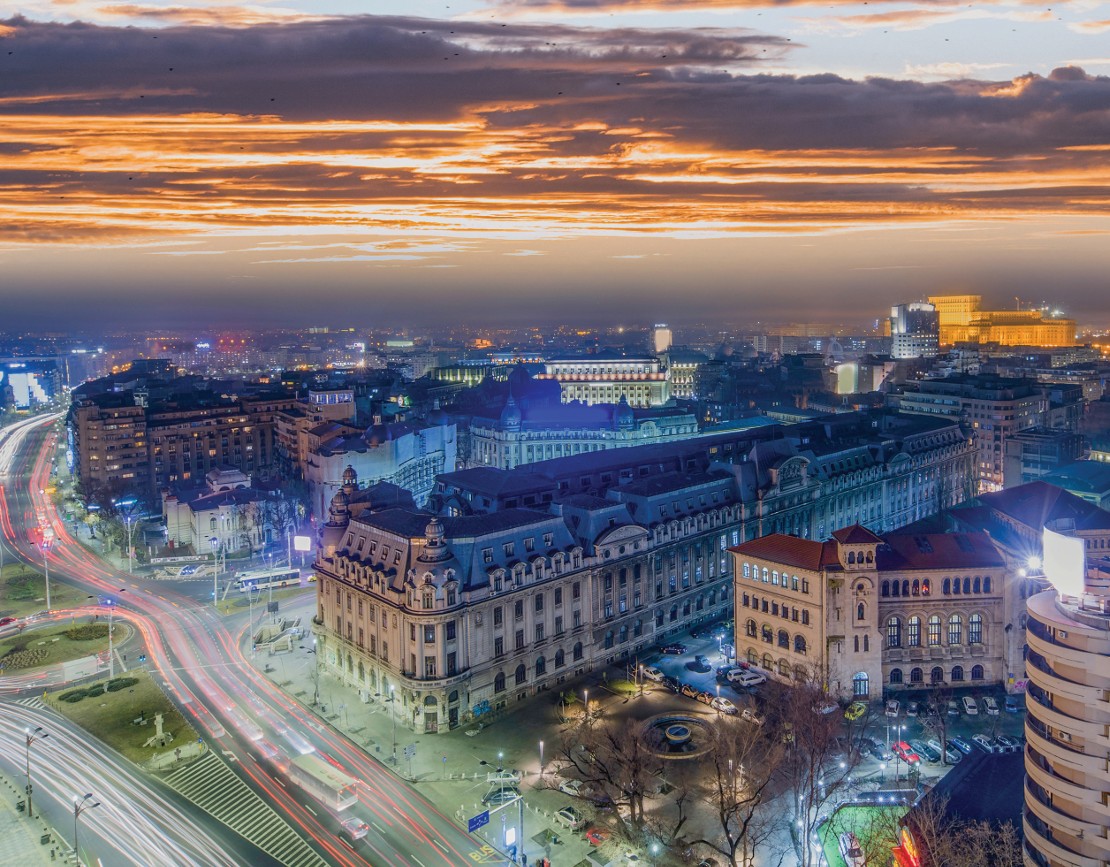
ROMANIA
ROMANIA
ROMANIA – Authentic, Innovative, Limitless
These three words are best capturing the spirit of Romania – a vibrant country where history, creativity and scenic beauty meet.
From medieval towns and 11 UNESCO heritage sites to breathtaking landscapes of majestic mountains, ancient virgin forests and cool beaches of the Black Sea coast, Romania offers a unique blend of tradition and modernity.
Beyond its natural and cultural treasures, Romania is also a smart choice for your academic journey. With internationally recognised degrees, affordable tuition fees and one of the most student-friendly costs of living in Europe, students here enjoy excellent education taught in several languages, while experiencing a welcoming and multicultural community that fosters both personal and professional growth.
Bucharest, the lively capital once known as the Little Paris in the period between the two World Wars for its elegant architecture and sophisticated elite culture, is today a dynamic hub for arts, innovation and student life.
At the same time, other university cities such as Cluj-Napoca, Iași, Timișoara, Sibiu, Brașov, Oradea or Constanța provide equally inspiring environments, each with its own charm and opportunities, to visit or to choose as your home during your studies.
Choosing Romania means broadening your horizons academically, culturally and personally – living in Europe while uncovering the legends and mysteries of Transylvania. History was written here. Innovation is at home. Will you allow it to kickstart your next chapter?

Capital
Bucharest
Languages
Romanian; many programs available in English, French, and German
Size
238,397 km²
Population size
19 million
Living Costs
Accommodation: Dormitories €60–85/month; shared housing €80–300/month; private apartments €130–300/month Food & Groceries: €100–300/month Transport: €10–40/month Utilities & Internet: €60–150/month Miscellaneous: €50–200/month Est. Total Living Costs: €300–700/month (depending on city and lifestyle)
Studying in Romania
Number of Institutions
Romania has more than 90 accredited higher education institutions, including public universities, private universities, and military academies. They are distributed across major cities such as Bucharest, Cluj-Napoca, Iași, and Timișoara.
Number of Degree Programmes
Wide range of Bachelor’s, Master’s, and Doctoral programmes across sciences, engineering, medicine, humanities, arts, and social sciences. Several programmes are available in English, French, German, and Hungarian.
International Courses
Romania is well known for its medical and engineering programmes taught in English and French. Universities also participate actively in Erasmus+ and other mobility schemes.
Tuition Fees
Tuition fees vary by programme and institution: – Medicine: €5,000–7,000 per year. – Engineering/Sciences: €2,000–5,000 per year. – Humanities/Social Sciences: often lower. Living costs are among the lowest in the EU (~€400–600/month).
Scholarships
Romanian Government Scholarships for non-EU students (covering tuition, accommodation, and monthly allowance). Additional opportunities include Erasmus+ mobility, university-specific grants, and bilateral exchange agreements.
Application Procedures
Applications are submitted directly to universities. Non-EU students must also obtain a Letter of Acceptance from the Romanian Ministry of Education. Detailed information and application steps available on Study in Romania.
Visa and Permits
EU/EEA students: No visa required, must register with local authorities for long stays. Non-EU students: Must apply for a student visa (D-type) after receiving the Letter of Acceptance. More info: Romanian Ministry of Foreign Affairs – Student Visa.
Student Life
Student housing (dormitories) is very affordable (€50–100/month). Private rentals available in all major cities. Romania offers vibrant student communities, cultural life, and is known for its affordability and hospitality. Students can also work part-time with proper permits.
Life After Studies
International graduates can apply to extend their residence permit for employment opportunities. Romania’s growing sectors include IT, engineering, healthcare, and business services. Being part of the EU also allows mobility across Europe.
More Information:
- Study in Romania – Official Portal
- Romanian Ministry of Education
- Romanian Ministry of Foreign Affairs
- Erasmus+
- Transilvania University of Brașov – Academic Programmes
- UMFST Târgu Mureș – 2024 Brochure (PDF)
- Technical University of Iași – Admissions
- Carol Davila University of Medicine and Pharmacy
- University of Alba Iulia – International Relations
- Aurel Vlaicu University of Arad – International
- Lucian Blaga University of Sibiu
Videos
Copyright 2025 © European Union Delegation to Singapore.